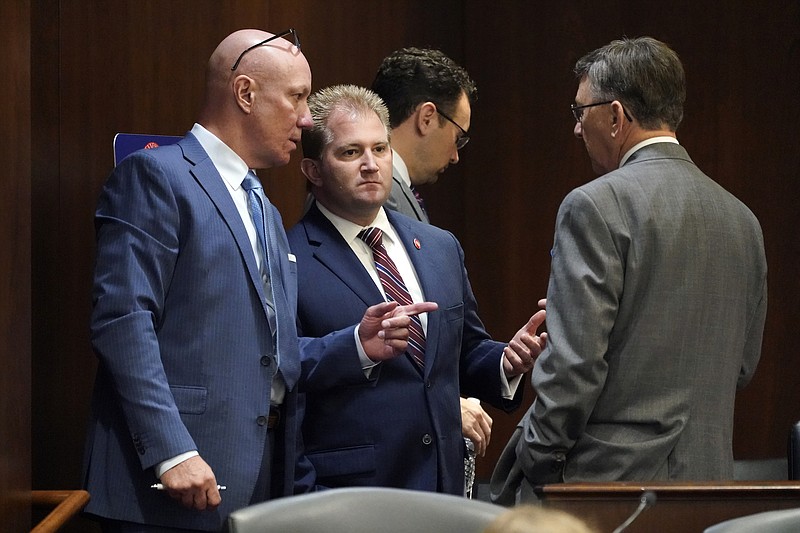A few days before legislators convened in a special session to address controversial COVID vaccination requirements and mask mandates in Tennessee, state Sen. Mark Pody, R-Lebanon, previewed his intentions :
"There is an evil government in Washington, D.C., that is overstepping its bounds and is trying to replace God with it. They're trying to tell each and everyone of us what we can and cannot do."
(And you thought God had always made clear what everyone, not just Tennesseans, can and cannot do. But I digress.)
Republicans constitute a super-majority in the General Assembly. If nothing else, that advantage imposes upon them a responsibility to avoid producing legislation so infected with social media stupidity that Gov. Bill Lee would be obliged to veto it. Whether the legislators would override his veto is, of course, anybody's guess.
Before they get to the point of embarrassing themselves, the super-majoritarians should consider how their predecessors dealt with essentially the same issue 54 years ago.
In 1967, when Pody and most of his colleagues were likely callow junior high school students, the General Assembly passed and then-Gov. Buford Ellington signed legislation that for a half-century has protected the health of thousands of schoolchildren.
The first paragraph asserted the law's intention:
"An act to require immunization of children against certain diseases designated by the Commissioner of Public Health and to require proof of immunization prior to entry of children into school."
Section 1 authorized the commissioner to "designate diseases against which children must be immunized prior to entry into" state schools.
But it also stipulated that "in the absence of an epidemic or immediate threat thereof," parents had the right to object to immunization "and other preventive measures" that would "conflict with their religious beliefs."
The final paragraph routinely applies to any legislation: "This act shall take effect upon becoming law, the public welfare requiring it." (Current vaccinations protect against hepatitis B, diphtheria, tetanus, whooping cough, polio, mumps, measles, rubella and chicken pox, among other ailments.)
Two other points in the 1967 act are relevant today.
One is the phrase in Section 1 - "the absence of an epidemic," which obviously can be linked to the lingering persistence of the virus pandemic that has so far killed some 16,000 Tennesseans.
The other is the routine inclusion of the phrase, "the public welfare": Will the special session's work reflect that valuable factor?
Pody's condemnation of the "evil government in Washington," and his suggestion that God's will is somehow thus jeopardized, epitomizes the efforts by politicians, social media scribblers - even some parents - to turn the phrase "public welfare" into meaninglessness.
Sure, all of them have the First Amendment right to free speech. But rhetorical agitation and political malpractice are costly.
How costly? Consider the current death toll of more than 700,000 Americans.
Michael Loftin is a former editorial page editor for The Chattanooga Times.
